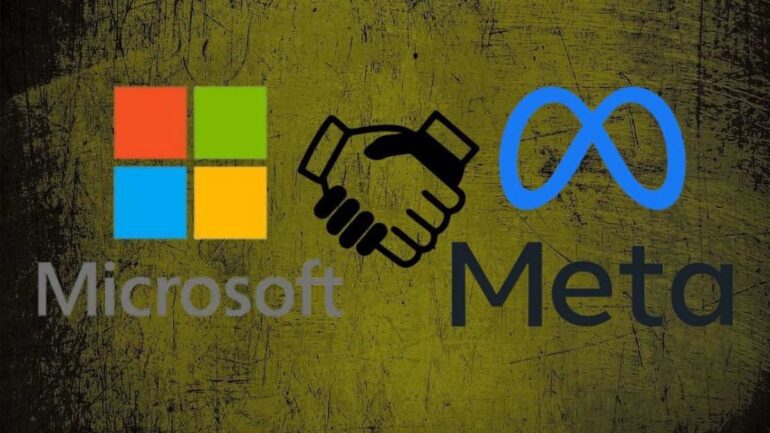TL;DR:
- Meta and Microsoft have joined the Partnership on AI to work on a framework for responsible practices in AI-generated media.
- The collaboration aims to address technical, legal, and social implications related to AI-created content.
- Meta expresses excitement about educating people about generated media and utilizing technology for creative expression.
- The Partnership on AI recognizes the influence of Meta and Microsoft in reaching billions of users and helping them discern synthetic media.
- The framework complements Adobe’s Content Authenticity Initiative and provides recommendations for media creators and distributors.
- Industry groups like Partnership on AI establish best practices to preclude stricter regulations.
- Companies involved are proactively embracing AI regulation while advocating for responsible practices.
Main AI News:
Meta and Microsoft have announced their collaboration with the Partnership on AI, a group dedicated to promoting responsible practices in the realm of AI-generated media. This alliance seeks to develop a comprehensive framework that addresses the technical, legal, and social implications associated with the emergence of AI-created content. By joining forces, these tech giants aim to foster a nuanced approach to educating individuals about synthetic media.
Nick Clegg, President of Global Affairs at Meta, expressed his enthusiasm for this collaboration, stating, “Meta is excited to join the cohort of supporters of Partnership on AI’s Responsible Practices for Synthetic Media and to work with PAI on developing this into a nuanced approach to educating people about generated media.” Clegg further emphasized their optimism about leveraging AI technology to enhance creative expression within their community.
Claire Leibowicz, Head of AI and Media Integrity at the Partnership on AI, acknowledged the significant impact of Meta and Microsoft, noting, “Meta and Microsoft reach billions of people daily with creative content that is rapidly evolving.” Leibowicz highlighted the expertise and global reach of these companies, which will be instrumental in helping users worldwide discern AI-generated images, videos, and other forms of media as the prevalence of synthetic media continues to grow.
This collaborative effort builds upon the foundation laid by the Partnership on AI, which was established in February and includes founding members such as Adobe, Bumble, OpenAI, TikTok, BBC, the Canadian Broadcasting Company, and WITNESS, a human rights and technology group. Adobe, for instance, has been pioneering its Content Authenticity Initiative (CAI) for the past four years, enabling the tracking of image provenance over time, including any alterations made. While CAI and the new framework from Partnership on AI are separate initiatives, they are complementary in nature. The framework provides recommendations for content creators and distributors, incorporating various aspects of CAI, particularly in its sections on disclosure. However, the framework goes beyond disclosure, emphasizing responsible and harmful use cases for synthetic media, informed consent, and broader transparency.
Conclusion:
The collaboration between Meta, Microsoft, and the Partnership on AI to develop responsible practices in AI-generated media signifies a significant step toward ensuring the ethical and accountable use of synthetic media. By addressing technical, legal, and social implications, this collaboration aims to establish a framework that will guide media creators and distributors in promoting transparency, informed consent, and responsible use of AI technology. With the influence and reach of Meta and Microsoft, this initiative holds the potential to educate billions of users worldwide and shape the future landscape of AI-generated content. As the market continues to evolve, this collaborative effort emphasizes the importance of proactive industry engagement and self-regulation in anticipation of AI-related policies and regulations.

